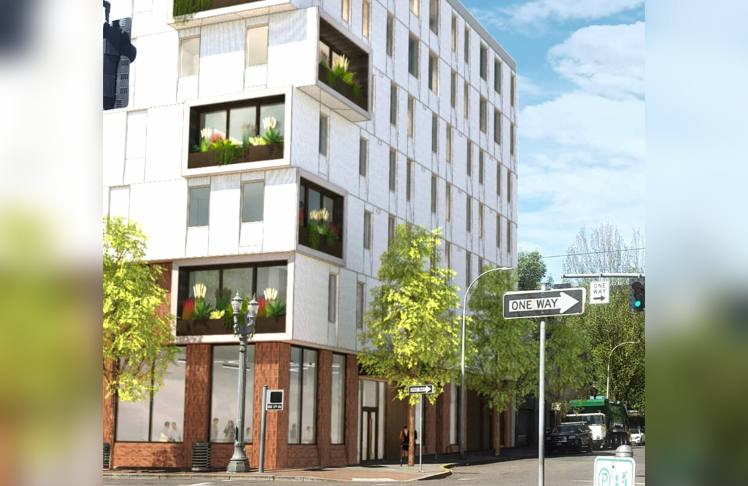
In December 2022, the Starlight, a development with 100 affordable units targeted primarily to residents transitioning out of homelessness, opened in downtown Portland. All residents of the permanent supportive housing units have experienced chronic homelessness, and many have a disabling condition. Of the permanent supportive housing units, 40 of them are targeted to people of color.
Developed by Central City Concern (CCC), the Starlight offers its residents access to supportive services onsite. This is all in the immediate vicinity along with culturally specific programming for Native American and African-American residents. A big plus is the understanding that economics play a huge part in homelessness. The CCC offers job training and other employment services to residents. At the Employment Access Center, which is also located in Old Town, support staff offer job coaching, vocational and computer training, résumé help, and access to online tutorials.
As a part of its effort to increase affordable housing in the city of Portland, the Portland Housing Bureau decided to develop permanent supportive housing on the site of a dilapidated apartment building in the city’s downtown. Located in the Old Town neighborhood of downtown Portland, the Starlight is close to many goods and services. Several restaurants, grocery stores, retail outlets, parks, and healthcare providers.
The 7-story building has 28 studios and 72 single-room occupancy units. Eight apartments are reserved for households earning up to 50 percent of the area median income (AMI), and 22 are reserved for those earning less than 30 percent of AMI. The remaining 70 units are permanent supportive housing supported by project-based vouchers.
Portland is putting the houseless issue in the front. Roughly one-third of the Starlight’s $33 million development cost, including the initial purchase, was funded through revenue from Portland’s dedicated $258 million affordable housing bond, which city voters approved in 2016. Another $6 million came from other city and county capital sources.















